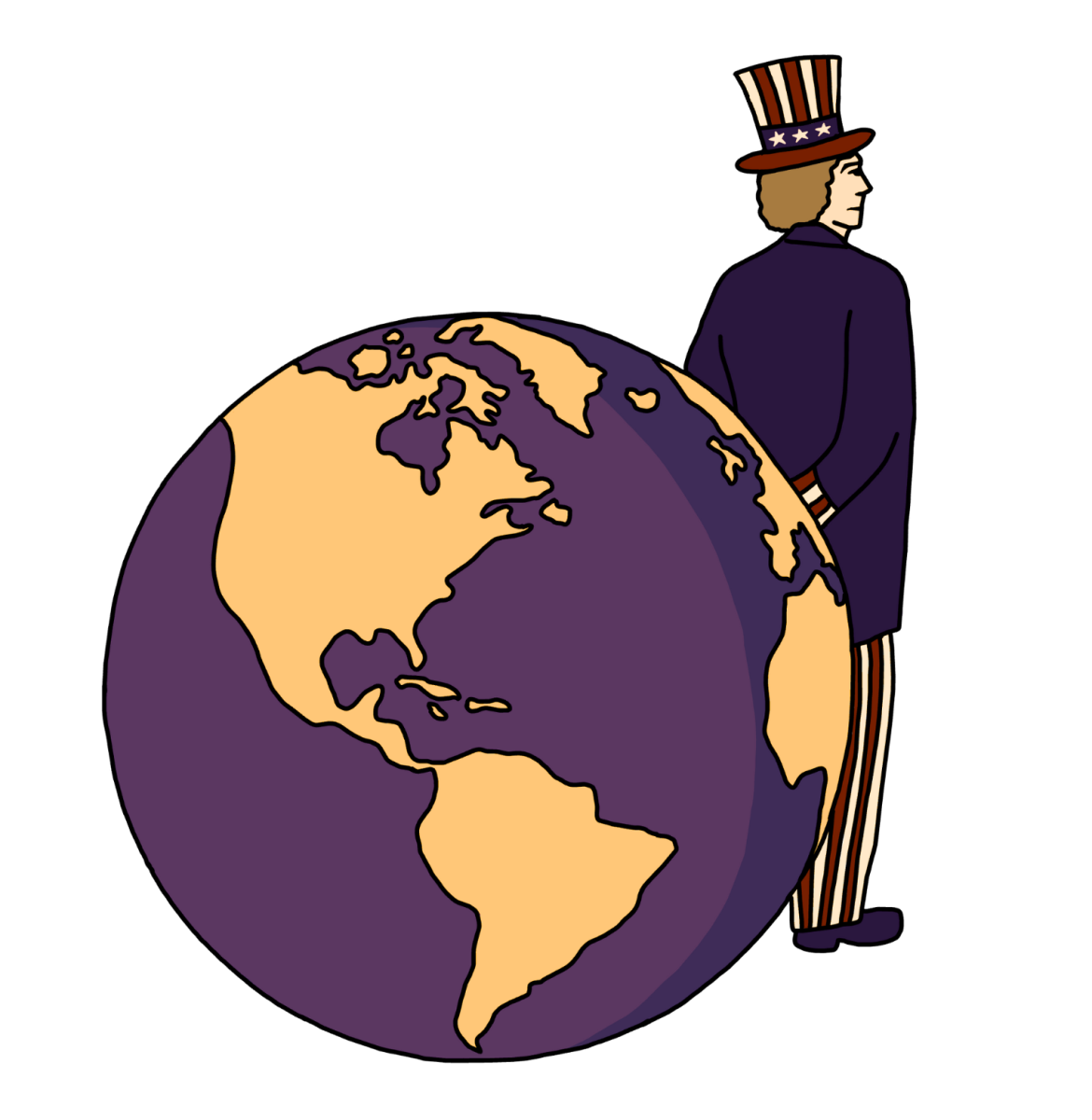Since the inauguration of President Donald Trump, new developments concerning international relations have placed the country in a difficult position. As situations abroad continue to change, the United States evaluates its decisions in relation to their priorities and the needs of other countries.
Since the early 20th century, the U.S. has influenced many countries who depend on their militarial, economic and political support. Recent events, however, have driven former allies to question how much power the U.S. should hold. In the case of the ongoing trade war, Trump has maintained his decision of imposing tariffs on Canada and Mexico despite the effects it may have on the U.S. economy.
Senior Sviatoslav Volynskyi believes that the trade war is putting America’s economy in jeopardy. He feels that without production and exportation between countries to allow access to varying resources, the cost of living will increase and markets will experience a period of instability.
“There was a reason why the United States left the isolationist approach. It was more beneficial to distribute the economy around the world,” Volynskyi said. “When you start trade wars, you cut off the trade and as a result, what you lose outside will have to be produced inside. This is what isolation is about. It just kind of creates this closed system.”
In addition to the loss in economy, social science teacher Daniel Skapinsky believes the trade war will have a long-term impact on political matters and the United State’s reputation.
“America’s goodwill around the world. We lose that,” Skapinsky said. “Helping other countries, that allows countries like China to come in and be able to take our place in supporting these countries.”
According to Volynskyi, the loss of American influence will allow other countries to improve their own facilities and decrease dependency on the U.S. He believes that if the trade war is to reach a somewhat amiable end, Europe may have to loosen their dependency on the U.S. and have a more solid role in setting the final terms.
“Trump doesn’t see the benefit in the existence of this whole united western world. He wants to look for opportunities in Russia (and because of this) Europe now understands that you shouldn’t be reliant on the United States as a whole,” Volynskyi said. “The end result of how this war ends will largely depend on how much Europe will be able to participate in the whole process.”
Although Trump’s policy of “America First” aids in promoting a sense of priority and patriotism to the public, Skapinsky feels that the U.S. needs to change its position on international affairs and foreign policies. Beyond putting the U.S. first, he believes there is an obligation to provide allies with immediate support and look after their long-term interests.
“Help other countries rebuild or battle diseases is what we call soft power. America has the hard power with the military, but we also need soft power to be helping other countries,” Skapinsky said. “This is really important so democracy and freedom flourishes around the world, rather than dictatorships taking over or being invaded by fascist governments.”
Many feel the U.S. Department of Defense underlines a need for national support, arguing history has shown that international cooperation has proved beneficial.
“The idea is that a more globalized and a more interconnected world is better. If you don’t maintain the connections, then it becomes kind of impossible to exist,” Volynskyi said. “The United States influenced a large portion of the world, and now the United States is losing the influence, and as a result, the world is becoming less globalized.”


